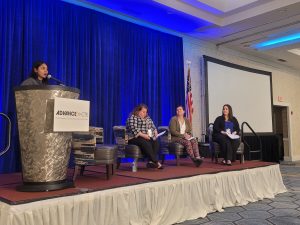 On Friday, May 13, attendees at Advance CTE’s Spring State Leadership Retreat heard from three State CTE Directors participating in Advance CTE’s state cohort to begin implementation of Without Limits: A Shared Vision for the Future of Career Technical Education (CTE Without Limits). Moderated by Advance CTE Senior Advisor Nithya Govindasamy, panelists shared how CTE Without Limits has inspired meaningful cross-sector conversations, and key leadership lessons to build trust, center learners and sustain partnerships.
On Friday, May 13, attendees at Advance CTE’s Spring State Leadership Retreat heard from three State CTE Directors participating in Advance CTE’s state cohort to begin implementation of Without Limits: A Shared Vision for the Future of Career Technical Education (CTE Without Limits). Moderated by Advance CTE Senior Advisor Nithya Govindasamy, panelists shared how CTE Without Limits has inspired meaningful cross-sector conversations, and key leadership lessons to build trust, center learners and sustain partnerships.
Background
The panel consisted of three state directors: Sarah Heath of Colorado, Katie Graham of Nebraska and Maria Swygert of South Carolina. At the start of the panel, each leader provided a brief overview of the focus of their initial vision implementation work.
Colorado’s focus is Principle 2: Each learner feels welcome in, is supported by, and has the means to succeed in the career preparation ecosystem to empower state and local leaders to have knowledgeable and meaningful conversations about equity gaps in data. Heath shared “we saw the work isn’t working,” that too many leaders could interpret the data but didn’t feel empowered to discuss and act on it. Through participation in the cohort, Colorado strives to build will and support for change through a statewide equity action plan with a focus on expanding equity-focused professional development opportunities for state and local CTE leaders.
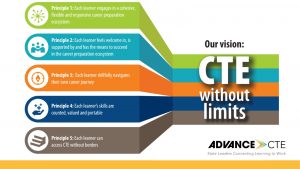 Nebraska’s focus is advancing Principle 3: Each learner skillfully navigates their own career journey with a focus on learners with disabilities. State CTE staff will partner with special education and vocational rehabilitation services agencies to scale strong existing state collaboration to the local level. This includes alignment of policy, communications and professional development initiatives.
Nebraska’s focus is advancing Principle 3: Each learner skillfully navigates their own career journey with a focus on learners with disabilities. State CTE staff will partner with special education and vocational rehabilitation services agencies to scale strong existing state collaboration to the local level. This includes alignment of policy, communications and professional development initiatives.
South Carolina’s focus is Principle 1: Each learner engages in a cohesive, flexible, and responsive career preparation ecosystem to achieve ‘next-level collaboration’ through more uniform processes and local support for conducting the Comprehensive Local Needs Assessment (CLNA) process. This will be accomplished through an assessment survey to each of their twelve cross-sector regional teams consisting of secondary, postsecondary and workforce leaders, as well as a state-level meeting to create an action plan based on survey results.
Building and Sustaining Meaningful Cross-Sector Partnerships
Each leader shared strategies they found to be effective in building and sustaining meaningful cross-sector partnerships. State Director Katie Graham emphasized the importance of cultivating personal relationships with leaders before you need them for project work. She shared that her choice to focus on learners with disabilities was inspired in part by her strong personal relationships with state staff connected to special education and vocational rehabilitation that simply started with conversations about their work years ago, rather than a specific request to share funding or resources.
State Director Sarah Heath elevated that building partnerships requires several steps, and should not begin with an ask for shared funding. Using a “gather, train, then share” approach, Colorado began their partnerships by finding shared goals and planning meetings and initiatives together. This was followed by providing mutual support on logistics and information, including conversations on common definitions, data collection and use, and data metrics to find common ground.
The directors also highlighted the importance of establishing intentional strategies that build trust and provide information that reinforces shared goals. State Director Maria Swygert shared that each quarter her office compiles a two-page report connecting the latest employment, graduation, placement and other key data points. This tool is shared with more than 70 partners statewide to reinforce the shared goal of improving learner and workforce outcomes. Graham shared that the growth of her partnership with those serving learners with disabilities resulted in a meeting where 19 needs assessment plans, including the CLNA, were streamlined to reduce the burden on local leaders and make connections among the data being collected.
Leadership Lessons Learned
Each leader was asked to share leadership lessons learned as a result of this work to build and sustain meaningful, learner-centered partnerships. Acknowledging and addressing capacity issues rose to the forefront. For states that may view the vision as yet another item for their to-do list, Heath emphasized that CTE Without Limits should not be seen as a separate approach, but rather a ‘value-add’ that takes the intent and goals of existing strategic plans, state vision statements, and other planning document to the next level and keeps learner needs at the center of all conversations.
Heath also shared that vision implementation work made her more comfortable with learning to let go of work, even though it may be important, that did not specifically advance learner needs or their state strategic plan. Swygert shared that the relationship-building conducted through this cohort allowed her to feel more comfortable not doing all the work alone and trusting the expertise and leadership of other state staff serving learners, including those not directly involved in CTE.
Each leader emphasized the value of vulnerability, transparency and honesty, especially in the early stages of relationship building with other state leaders, so that no damaging assumptions are made. Heath shared her mindset of “we all have room to grow in the work, and we want to grow together.” Graham shared a conversation she had with a state leader where she was only seeking to learn more about their role, but the latter assumed they were seeking funding instead of a meaningful partnership. So additional time was needed to build the trust to share the desired information.
Additional Resources
The CTE Without Limits cohort will receive funding, individual coaching and intensive technical support from Advance CTE through October 2022. An additional CTE Without Limits Community of Practice is open for state leaders to participate in bimonthly cross-state calls to share challenges and solutions aligned to the five vision principles. Sixteen states are currently participating — those interested in joining can contact Senior Policy Associate Hinderliter at dhinderliter@careertech.org.
For additional conversations with state and national leaders on advancing CTE Without Limits, visit Advance CTE’s webinars page for recordings of a spring virtual learning series aligned to each of the vision’s five principles.
Visit Advance CTE’s vision page for awareness and implementation resources, including its step-by-step assessment and action planning guide, Pushing the Limits: A Roadmap for Advancing CTE Without Limits that will be the basis for Advance CTE’s state cohort work.
Stacy Whitehouse, Senior Associate Communications and State Engagement


 “Go forth without limits!” was an apt parting chat message as over 70 state Career Technical Education (CTE) leaders from across 16 states convened virtually last month to launch the community of practice for
“Go forth without limits!” was an apt parting chat message as over 70 state Career Technical Education (CTE) leaders from across 16 states convened virtually last month to launch the community of practice for 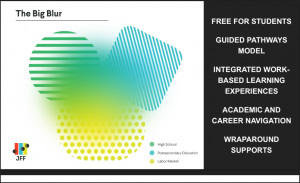 Vargas challenged attendees to dream big and be the new models for scalable solutions by being a “network facilitator,” by combining career pathway expansion with intentional investments in collaboration and sustained partnershi
Vargas challenged attendees to dream big and be the new models for scalable solutions by being a “network facilitator,” by combining career pathway expansion with intentional investments in collaboration and sustained partnershi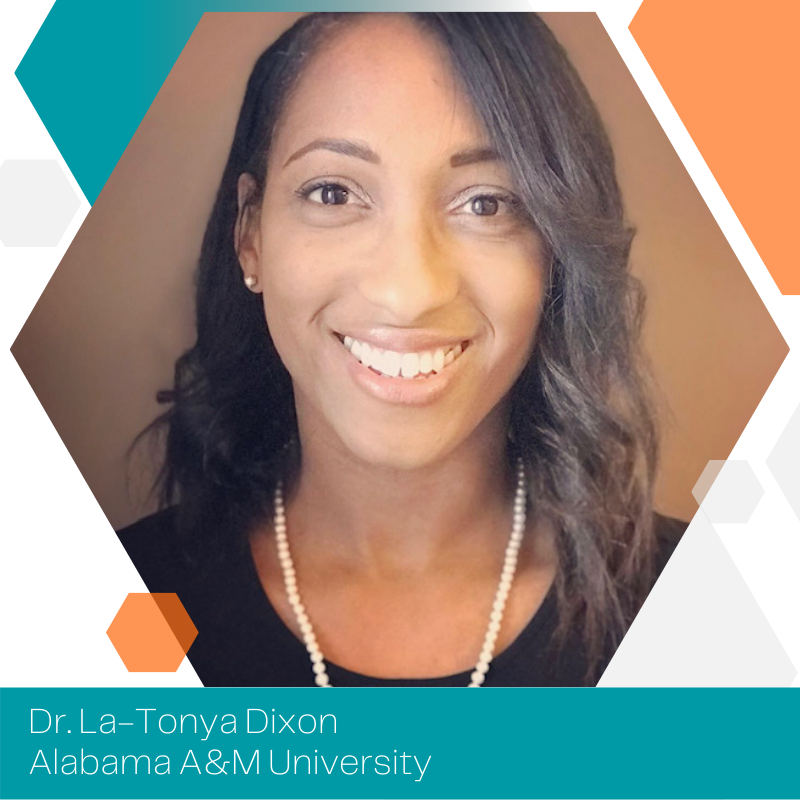
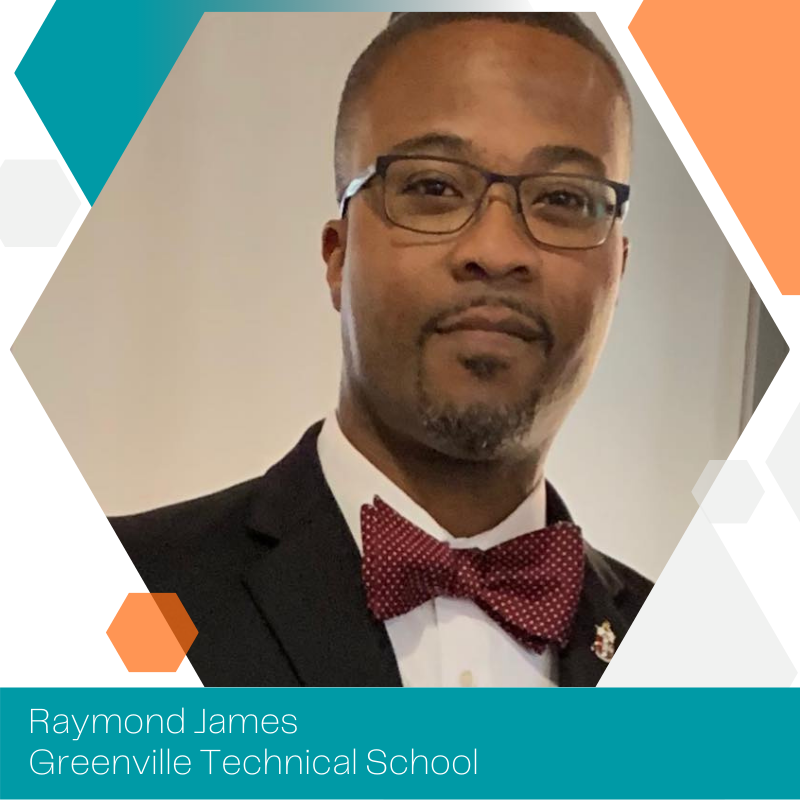 Raymond James (South Carolina) is a veteran of the United States Army, and currently serves as Department Head for machine learning at Greenville Technical School in Greenville, South Carolina. James earned an associate degree in General Engineering Technology at Tri-County Technical College and a bachelor’s degree in Business Administration from Kaplan University.
Raymond James (South Carolina) is a veteran of the United States Army, and currently serves as Department Head for machine learning at Greenville Technical School in Greenville, South Carolina. James earned an associate degree in General Engineering Technology at Tri-County Technical College and a bachelor’s degree in Business Administration from Kaplan University.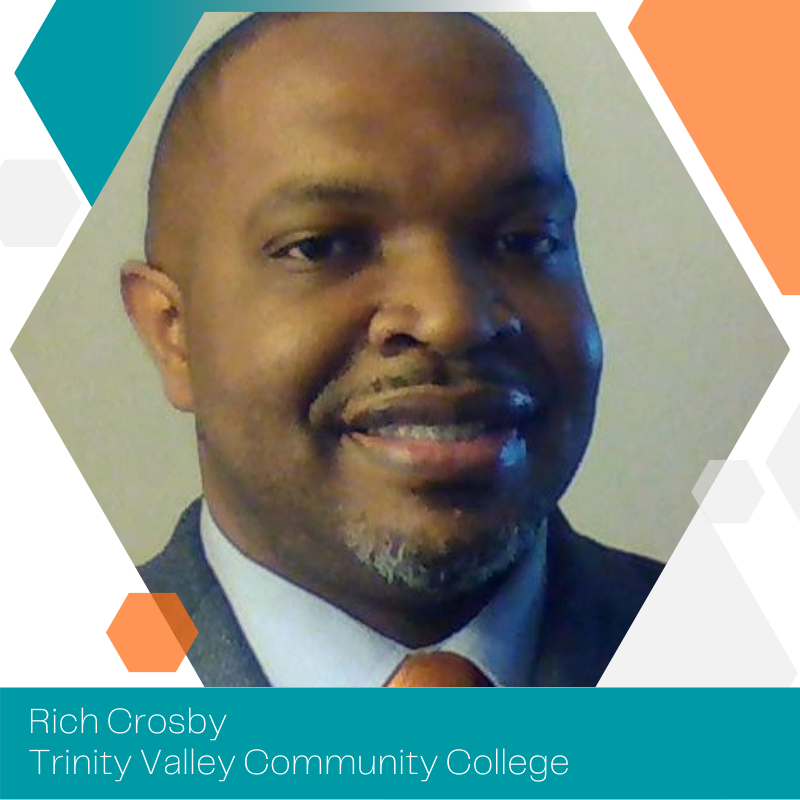
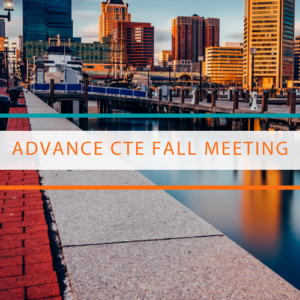 On October 27 and 28, over 270 state Career Technical Education (CTE) leaders gathered for Advance CTE’s 2021 Fall Meeting. Through timely plenary discussions, breakout and networking sessions, members and supporters were able to reflect on the transformations of the COVID-19 (coronavirus) pandemic, gain knowledge on the latest research and promising practices in states, and create community by building networks with leaders in similar roles.
On October 27 and 28, over 270 state Career Technical Education (CTE) leaders gathered for Advance CTE’s 2021 Fall Meeting. Through timely plenary discussions, breakout and networking sessions, members and supporters were able to reflect on the transformations of the COVID-19 (coronavirus) pandemic, gain knowledge on the latest research and promising practices in states, and create community by building networks with leaders in similar roles. 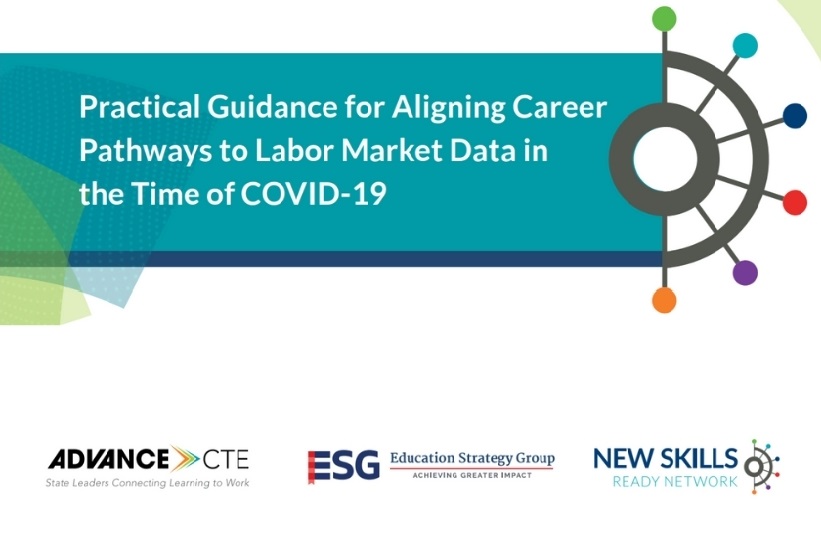 A career pathway is a progressive sequence of at least three courses that is aligned to high-skill, high-wage, in-demand occupations; spans secondary and postsecondary; reinforces academic learning with related work-based learning experiences; and embeds opportunities for students to earn both related postsecondary credit in a degree-granting program and industry-recognized credentials.
A career pathway is a progressive sequence of at least three courses that is aligned to high-skill, high-wage, in-demand occupations; spans secondary and postsecondary; reinforces academic learning with related work-based learning experiences; and embeds opportunities for students to earn both related postsecondary credit in a degree-granting program and industry-recognized credentials. 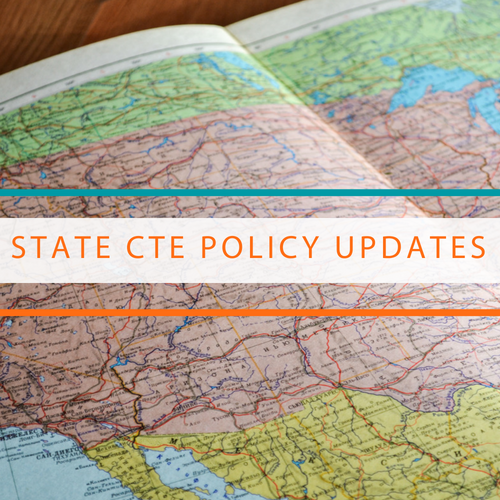 Since the beginning of the year,
Since the beginning of the year,  The “Getting to Know” blog series will feature the work of State CTE Directors, state and federal policies, innovative programs and new initiatives from the Advance CTE staff. Learn more about each one of these topics and the unique contributions to advancing Career Technical Education (CTE) that Advance CTE’s members work on every day.
The “Getting to Know” blog series will feature the work of State CTE Directors, state and federal policies, innovative programs and new initiatives from the Advance CTE staff. Learn more about each one of these topics and the unique contributions to advancing Career Technical Education (CTE) that Advance CTE’s members work on every day.